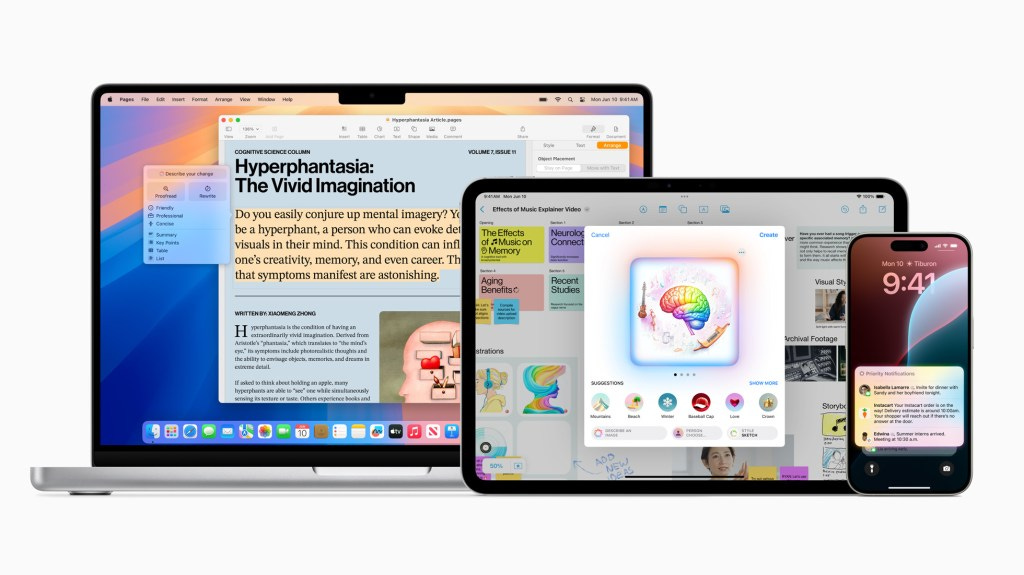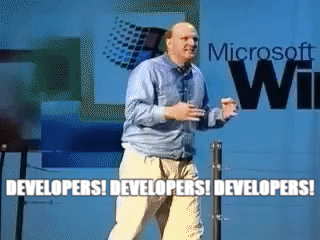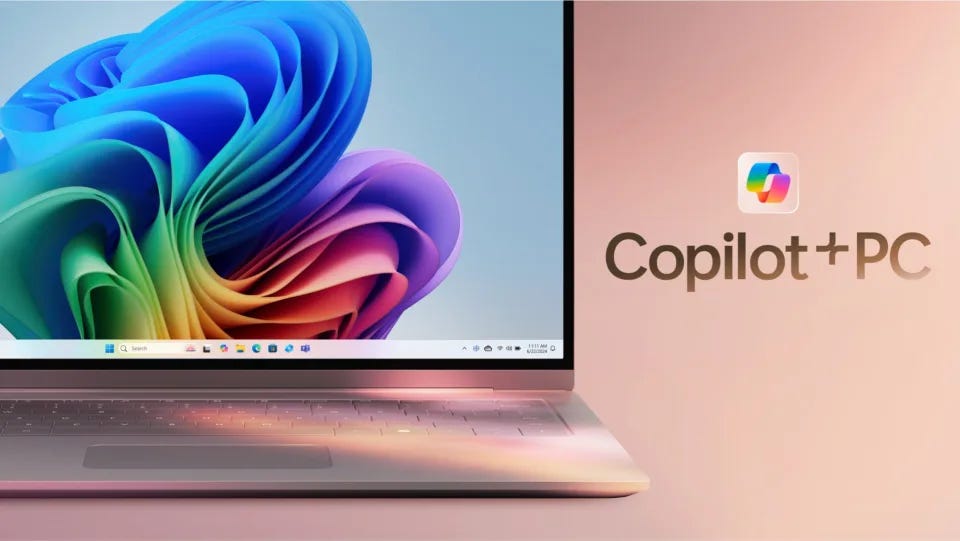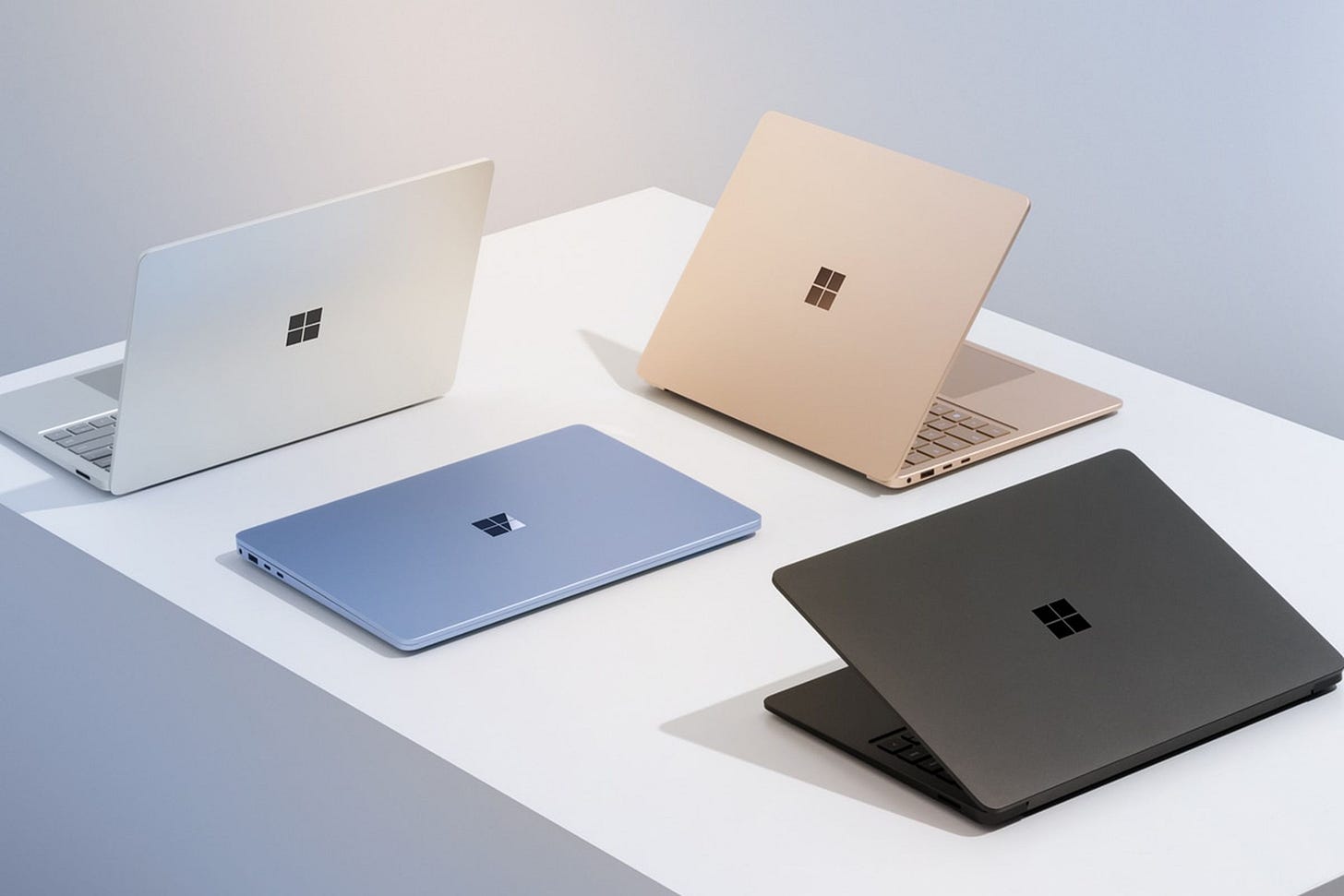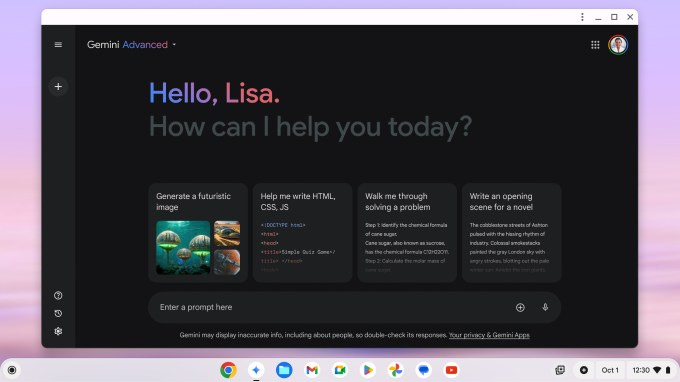AI: Microsoft & Google upgrade AI computers. RTZ #497
...local AI on PCs see new software and hardware capabilities
As I’ve long emphasized, AI is not just tethered to ever bigger AI cloud data centers, as the current race on ‘AI Table Stakes’ may sometimes suggest.
The race to add AI bottom up in our personal computers continues in this AI Tech Wave.
Microsoft with Copilot, Google with Gemini, and Apple with Apple Intelligence, are all running hard to bake AI into the operating systems (OSes) of their computers. To better power AI functionality for the applications and services on top of the OSes.
Using both multimodal large and small language models (LLMs and SLMs). Across computers, tablets and smartphones, as Apple is doing across its ecosystem.
These capabilities would be of course available to both first party apps and services by these companies, and to the third party apps and services built by Developers for those platforms. Microsoft is of course famous for their focus on developers.
Microsoft had a slew of updates on this front today, supplementing the ‘AI Copilot PC’ announcements I discussed back this May.
As Axios summarizes in “Microsoft looks to kick-start its AI push”:
“After privacy controversies stymied its signature Recall feature, Microsoft is looking to reboot its AI PC effort with improvements, the addition of some new AI tricks and broader chip support.”
“Why it matters: The addition of built-in AI functions could give the PC industry a much-needed boost, but only if Microsoft can deliver the right combination of features — and security — to entice businesses and consumers.”
“Driving the news: Following a delay, Microsoft has revamped Recall, requiring users who want to enable the feature to both opt in and to use biometrics to authenticate themselves, among other changes.”
“Microsoft is also adding new features for its Copilot+ PCs, including a universal "Click to Do" option that brings up different AI-assisted actions based on the content on the screen.”
“With a photo, for example, people will have the option to blur the background, remove an object or conduct a visual search. When there is text, users will have options to rewrite or summarize the text, conduct a web search or send an email.”
“Microsoft is also expanding the Copilot+ PC effort to include machines with processors from Intel and AMD, whose chips power the overwhelming majority of Windows PCs.”
The above devices of course would supplement the ‘AI Copilot PCs’ powered by power efficient chips by Qualcomm, launched this summer:
“Catch up quick: Microsoft introduced the concept of Copilot+ PCs in May, with a series of AI features that run locally on the machine rather than having to rely on cloud-based services.”
“Recall promised to follow and keep a record of everything a user sees and does on screen. That could make an AI assistant more helpful, but it also raised hackles over the amount of personal data Microsoft could gain access to.”
The bigger changes this time are led by the new head of Microsoft AI (MAI):
“The big picture: Former Inflection CEO Mustafa Suleyman, who was tapped in March to head Microsoft's consumer AI effort, released a memo describing the "AI companion for everyone" he aims to build.”
"I truly believe we can create a calmer, more helpful and supportive era of technology, quite unlike anything we've seen before," he wrote, laying out his vision for the first time since joining Microsoft, while noting it will take years to fully develop the technology.”
“Suleyman pledged that Microsoft's Copilot+ will grow to understand more context and remember the most helpful details from your life while also "safeguarding your privacy, data and security."
"Over time it'll adapt to your mannerisms and develop capabilities built around your preferences and needs," Suleyman said, and it will eventually be able to act on user's behalf. "We are not creating a static tool so much as establishing a dynamic, emergent and evolving interaction."
“The effort is more comprehensive than the piecemeal features thus far unveiled for Copilot+, reminiscent of the broader vision Apple has laid out for Apple Intelligence, which also appears to be a long-term endeavor.”
Microsoft has to balance these AI Copilot initiatives across its diverse product lines, while coordinating with its LLM AI partner OpenAI:
“Between the lines: The challenges for Microsoft are familiar ones. It is a huge company, separated into a host of product teams, and it has to work with several chip suppliers and PC partners, complicating efforts to deliver a unified and compelling experience.”
“Microsoft is also trying to seamlessly blend homegrown AI technologies with those from partner OpenAI.”
“As part of its announcements on Tuesday, Microsoft said it is testing a 'think deeper" feature that gives Copilot+ the ability to reason through more complex problems by "using the very latest reasoning models" — i.e., OpenAI's new o1 model.”
There are more details on the Microsoft Copilot PC initiatives available here and here for those interested.
Google is also ramping similar efforts with its Google OS powered Chromebook PCs. As Techcrunch explains in “Google adds a multi-functional quick insert key and new AI features to Chromebook Plus”:
“Google is announcing new Chromebook models today with Samsung and Lenovo. With Samsung’s Galaxy Chromebook Plus model in particular, the company is also introducing a new multifunctional quick insert key. But Google doesn’t want to leave existing Chromebook users behind as it added new AI-powered features for existing devices.”
“The quick insert key, which also acts as a Caps key, will open a new menu with access to the Gemini-powered “Help me write” tool, emoji and GIF search, recent browsing history to quickly copy links, Google Drive integrated search, and tools to do quick calculations, add dates, or convert units.”
The company is also adding additional AI features for Chromebook Plus, as the piece goes on to describe:
“There are ton of updates for all Chromebooks, too. Google is now pinning Gemini’s web app in the shelf so you can quickly access the AI Assistant without having to open the browser.”
“Another neat feature is Welcome recaps, which will give you a visual overview of where you last were on any device. It also shows you suggestions for things like an article you were reading on Chrome on your Android or iOS device. Welcome recaps show you reminders to join the next call or show a shortcut to recently opened file.”
“Chromebooks are also getting customizable Focus modes, similar to the iOS Focus feature, which turns on Do Not Disturb after you select a time period. You can also play white noises through soundscapes or select a YouTube Music playlist.
What’s more, ChromeOS will let users pin files to the Chromebook’s shelf (dock) for easier access when online or offline.”
All these efforts by Google, Microsoft and of course Apple as I’ve previously described, speak to the bottom up remaking of both AI computers AND smartphones going into 2025 and beyond.
This upgrade cycle will take a couple of years, but it means that in that time frame, over a 100 million new computers, and tens of millions of new smartphones, from the above companies, will have both the bottom up hardware and software to run AI locally. And to coordinate with AI cloud services for maximum mainstream user privacy, personalization, and local performance.
Over that time, these new devices can allow a whole host of AI functionality beyond ‘AI chatbots’ today. Tethered or untethered from AI clouds. Stay tuned.
(NOTE: The discussions here are for information purposes only, and not meant as investment advice at any time. Thanks for joining us here)



